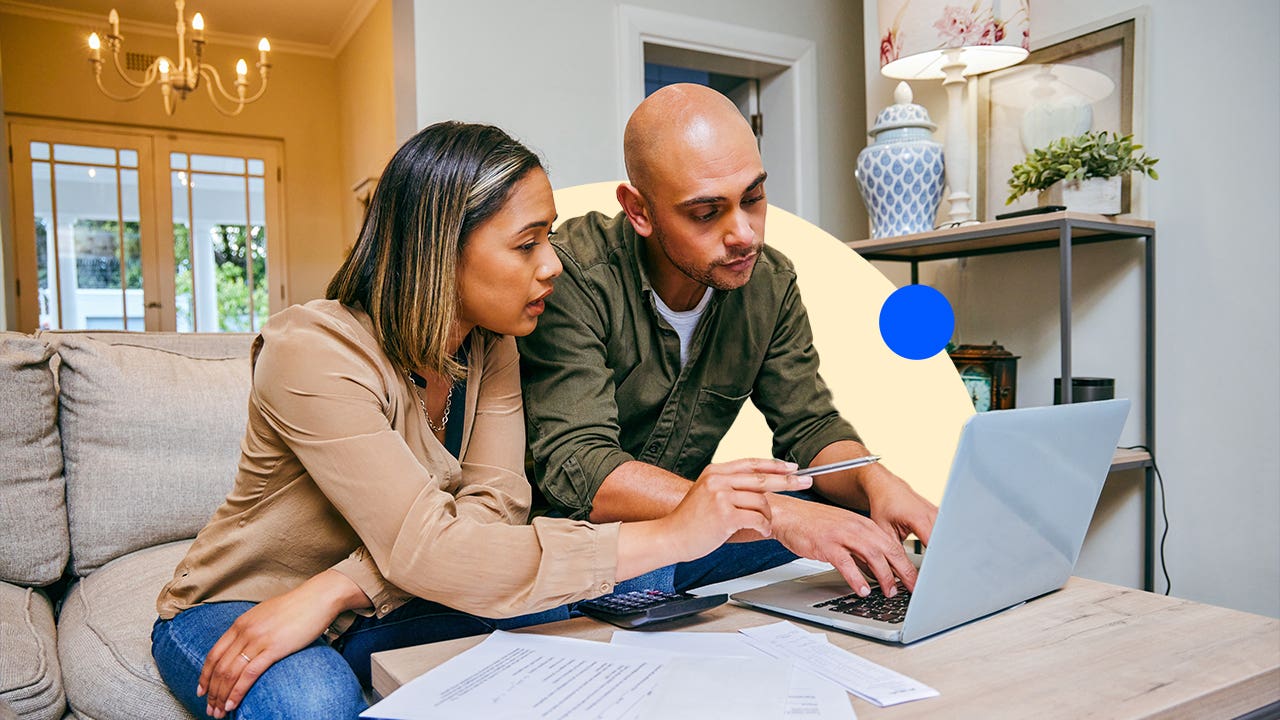Personal loan documents to gather before you apply

Key takeaways
- Most personal loan lenders require documents to prove your identity, income, bank account and address.
- Lenders collect information about your credit score, loan purpose and monthly expenses to determine your eligibility and loan terms.
- Gathering all necessary documents and information before applying for a personal loan may help you receive your funds faster.
When you apply for a personal loan, lenders request several documents to verify your personal and financial information before making a lending decision. While each lender has unique application and eligibility requirements, most will require similar documentation.
Knowing which documents you need and having them ready before you apply may increase your chances of approval and help you receive your funds more quickly.
1. Application form
All lenders require you to fill out an application form to be approved for a loan. If you’re borrowing from an online lender, the process is done entirely online. If you apply for a personal loan with your local bank or credit union, you may be able to complete the application in person with a bank representative.
The application will likely look slightly different from one lender to another, but will usually ask for information such as:
- Your full name
- Contact information
- Address history
- Date of birth
- Social Security number
You’ll need to choose a loan amount, answer questions about the purpose of your loan and provide financial details about your monthly income, bills and debt obligations.
2. Proof of identity
Lenders must verify your identity to approve your loan. Two forms of identification are usually required, and acceptable documents may include your:
- Birth certificate
- Certificate of citizenship
- Driver’s license
- Military ID
- Passport
- Social Security card
- State-issued ID
The lender needs to be able to read your identification — take a clear picture with your smartphone or use a scanner to avoid delays.
3. Employer and income verification
Personal loan lenders rely on your income to determine how much you qualify for. Because you aren’t required to put up collateral to back an unsecured personal loan, you must prove that you have a steady stream of verifiable income to be approved.
If you’re traditionally employed, you can verify your income with a few documents, including:
- Pay stubs
- Tax returns
- W-2s and 1099s
- Bank statements
- Employer’s contact information
If you’re self-employed, you may need any or all of the following documents:
- Bank statements
- 1099s for the past two years
- Tax returns for the past two years
If you work for a regular employer, you may be able to access your pay stubs and tax forms through your payroll provider’s online database. You can also contact your human resources or payroll department for assistance. Self-employed applicants may need to work with a CPA or other tax professional for help gathering the required tax forms.
4. Proof of address
You must supply proof of your current address and information about how long you’ve lived there. You may not qualify if you’ve moved around a lot or just relocated to a new area — if you’ve recently moved, you may have to provide information about your previous address as well. While some lenders may require specific documentation, you can usually use one of the following:
- Utility bill
- Lease or rental agreement
- Mortgage statement
- Proof of insurance on your home or vehicle
- Voter registration card
- Property tax receipt
- Bank or credit card statement
If you need to confirm a change of address, the U.S. Postal Service offers resources to assist you. While the fastest and easiest way to do this is online, you can also visit your local post office and complete the form in person.
5. Bank account information
Most lenders will deposit your loan funds directly into your account, so you must provide your bank account information. You may also be required to set up an automatic payment through your bank to get the best personal loan rates.
If you apply with your current financial institution, they’ll have your information handy. If you choose to work with a new lender, have the following ready:
- Name of bank
- Routing number
- Checking account number
- Your user ID and password to your account (to verify your account through the lender’s secure system)
Lenders will often request that you link your bank account to a secure system to grant the lender “read-only” access to your account. This means they can see and verify your account, but can’t perform any transactions. This is a standard and safe method of verification
You can opt out of this, but you’ll need to verify your account by accepting small withdrawals and confirming the specific amounts. This option could delay your loan funds for several business days, but may be a good option if you don’t want to give the lender any sort of access to your account.
Other information lenders use to approve your loan
Once you apply, lenders will consider several factors when approving your loan and determining what rate to offer you.
- Credit score
- Loan purpose
- Monthly expenses
- Debt-to-income ratio
To improve your chances of approval and ensure a smooth application process, check your credit score and review your credit reports before applying. This way, you can take steps to improve your score if needed and avoid unnecessary applications.
You may boost your eligibility by paying down credit card debt, disputing errors on your credit reports and adding a creditworthy cosigner.
What if you don’t have the required loan documents?
You may not be completely out of luck. Depending on what’s missing, the lender may offer alternative verification methods.
For example, if you don’t have pay stubs handy, the lender may contact your employer directly to confirm income information or review your bank statements for proof of electronic deposits. If your income is directly deposited, some lenders can confirm your income information through your bank.
That said, not having the required documents could lead to delays or outright denial. Be sure to notify the lender right away if you’re missing documents to determine whether there are ways to work around the issue.
Here are three tips to consider if your personal loan application is denied:
- Get a cosigner, like a friend or family member who is willing to assume legal responsibility for the loan with you.
- Choose a bad credit personal loan or a secured personal loan backed by collateral like a boat, car, home or RV.
- Improve your credit score by paying down credit cards to lower your credit utilization ratio.
Bankrate staff insights
Bottom line
Gathering the information and documents you’ll need before applying for a personal loan can save you time and avoid potential funding delays. Make sure all your paperwork is legible and provide documents as quickly as possible to speed up the process.
Not all lenders have the same requirements, so ensure you are aware of the general documentation criteria before applying. By being prepared, you can increase your chances of approval and receive your funds more quickly.
Why we ask for feedback Your feedback helps us improve our content and services. It takes less than a minute to complete.
Your responses are anonymous and will only be used for improving our website.
You may also like

How to get a $35,000 personal loan

How to get an unsecured business loan

What to do if you are denied a loan

What documents are required for a business loan?




